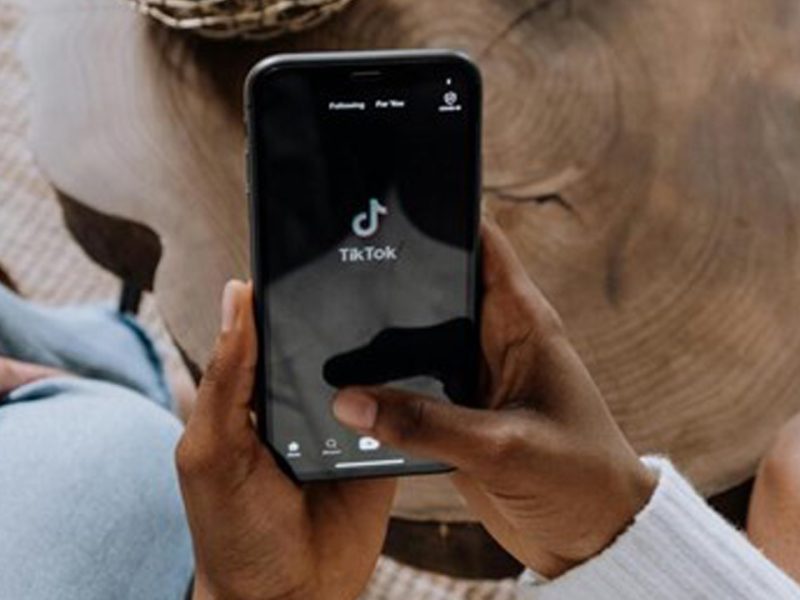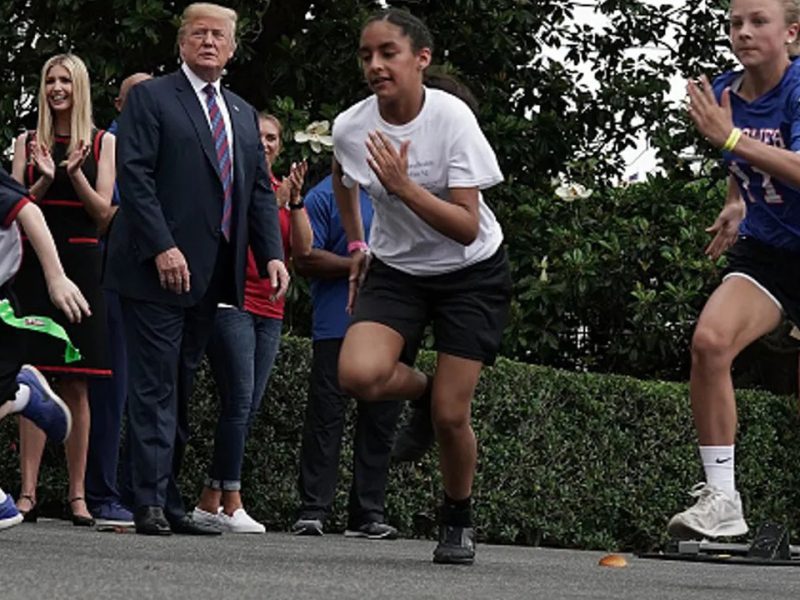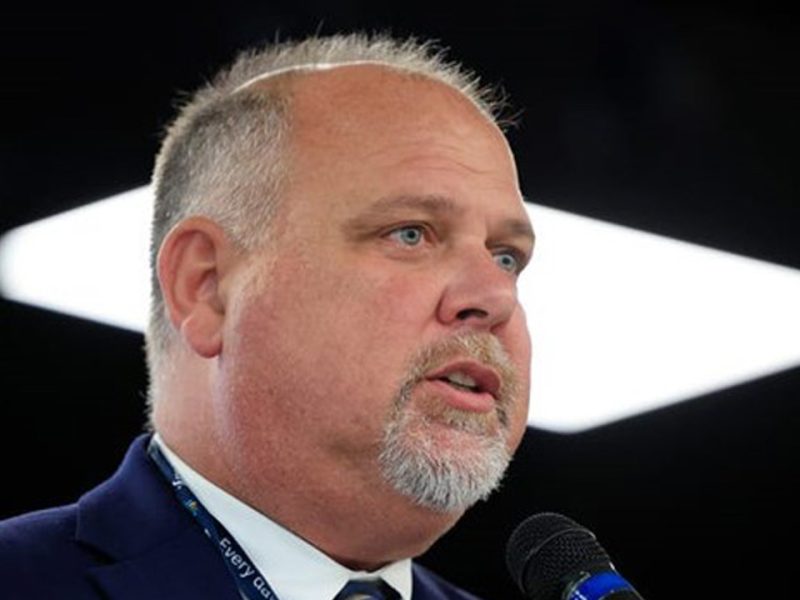Ron DeSantis signs bill mandating moment of silence in schools
The Republican governor is making his support of Israel clear as he positions himself for reelection in 2022.
Tampa Bay Times | By Marie Rose-Sheinerman, Ana Ceballos and Kirby Wilson | June 15, 2021
BAL HARBOUR — Nearly 300 people gathered at the Shul of Bal Harbour, a sprawling Orthodox synagogue, to greet Gov. Ron DeSantis on Monday as he signed into law two bills of particular importance to the South Florida Jewish community — one authorizing a local emergency medical service and another mandating a “moment of silence” in schools.
The governor also took the opportunity to make it clear how strongly he supports Israel. He promised shortly after taking office to become the most “pro-Israel governor in America.”
One of the bills will grant privileges to Hatzalah of South Florida, a Jewish-led emergency medical services volunteer network that is part of a larger EMT organization with branches across the nation and in Israel. In Miami-Dade and Broward counties, Hatzalah has 70 volunteers, including paramedics and first responders, who work to answer 30 to 150 emergency calls each week including for tourists and non-Jews in the neighborhood, Zalman Cohen, its operations manager, said in an interview.
The new law, HB 805, authorizes the use of sirens and red lights on privately owned vehicles of volunteer staff in groups like Hatzalah, allowing for faster response time and transportation of patients to hospitals, according to the bill’s proponents. The bill prohibits the use of sirens and lights when not responding to an emergency.
“What started as a dream 13 years ago has given birth to today’s reality,” said Baruch Sandhaus, the executive director of Hatzalah of South Florida. “Today marks the day that Hatzalah can become a full-fledged volunteer agency in the great state of Florida.”
Hatzalah, meaning “rescue” in Hebrew and founded by a Brooklyn rabbi in 1965 as a volunteer service for the city’s Orthodox neighborhoods, on Monday became the first private and faith-based EMT response group in Florida.
Although it has operated in the state for more than a decade and, according to Sandhaus, has assisted in 13,000 emergencies in that time, until this year the organization was not allowed to operate as an ambulance service. The bill, approved by a vast majority of the Legislature, allows Hatzalah to operate as an ambulance service without getting that approval from counties.
As the bill made its way through the Legislature, the Florida Fire Chiefs’ Association opposed the bill, arguing that the addition of Hatzalah would create a more disorganized local emergency services system. Hatzalah is not a part of local 911 networks, Ray Colburn, the Florida Fire Chiefs’ Association executive director, noted at an April committee meeting.
“We’re very blessed in Miami Beach because we have tremendous fire and ambulance services, so it’s not really an issue in Miami Beach that much,” Miami Beach Commissioner Steven Meiner said in an interview. “But it’s still nice to know that there’s a volunteer service that can literally save lives. The seconds literally count.” Miami Beach had passed a resolution in support of the bill, Meiner said.
Hatzalah responds to its own 10-digit phone number. The organization urges those suffering medical emergencies to call 911 before calling the volunteer service.
To one volunteer EMT with the group, Manny Hassan, the governor’s support of the bill felt personal. As a 5-year-old in New York, Hassan was hit by a car, and rescued by local Hatzalah EMTs. Now, he sees himself as giving back, volunteering with the organization for the past three years in South Florida, which he said frequently has him getting out of bed three or four times a night, responding to callers.
Bal Harbour Mayor Gabriel Groisman, who spoke alongside DeSantis in support of the bill, said in an interview that earlier this year he made use of Hatzalah’s services in his own family. When his wife’s grandmother fell and injured her head, he said, “we called both Hatzalah and 911 at the same time, and Hatzalah did come first.”
“In this community they work seamlessly,” Groisman said. “I actually saw first-hand how they gave her the aid she needed.”
Moment of silence in school
DeSantis also signed into law legislation that will require first-period public school teachers to institute a one- to two-minute moment of silence at the beginning of each day. Teachers will not be allowed to make suggestions on how kids should use the time but will be encouraged to talk to parents so they can talk to their children about how they should spend the time in class.
For several years, Republicans in the Legislature tried — and failed — to create a state law requiring the moment of silence. Opponents have long argued that mandating a moment of silence in public schools blurs the line between church and state.
“Could children take out rosaries and start doing the sign of the cross and other children feel uncomfortable? Could a child take out a prayer rug and start using a prayer rug?” Sen. Lori Berman, D-Boynton Beach, said when debating the measure during the 2021 session.
Proponents of the bill, however, said the measure is meant to be a moment of reflection. The bill itself says the Legislature finds that “in today’s hectic society too few persons are able to experience even a moment of quiet reflection before plunging into the activities of daily life.” The Republican-led body further found that “young people are particularly affected by the absence of an opportunity for a moment of quiet reflection” and that they would be “well served” with one.
Still, at the press conference, DeSantis framed the legislation in explicitly religious terms. Signing the bill while standing at the pulpit of a house of worship, he described the new law as a “religious freedom opportunity,” saying, “We think it’s something that’s important, to be able to provide each student the ability to be able to reflect and be able to pray as they see fit.”
“The idea that you can just push God out of every institution and be successful — I’m sorry, our founding fathers did not believe that,” the governor added.
Critics often argue the nation’s framers did, in fact, intend a strict separation of church and state, enshrining a prohibition on laws “respecting an establishment of religion” in the First Amendment.
Those in the audience seemed also to view the new law as a move to reintroduce prayer to the classroom. Ivan Gluck, an 83-year-old community member, said he sees the bill as “putting God back into the school system,” a move he supports. “If you don’t have religion, then I think that society and humanity will come to an end,” Gluck said.
Rep. Randy Fine, R-Brevard, who said he is the only Jewish Republican in the Florida House, sponsored the legislation and commended the governor for his strong stance against antisemitism.
DeSantis on Israel, anti-Semitism
Prior to signing both pieces of legislation, DeSantis was greeted with rousing applause from the synagogue crowd and spoke at length about his support for the Jewish community in Miami-Dade and the state of Israel.
When he was last at the Shul, DeSantis said, he spoke with community members about the potential move of the U.S. Embassy in Israel from Tel Aviv to Jerusalem, a controversial measure the Trump administration took in its early days.
After recounting a personal story of using water from the Sea of Galilee that his wife brought home from travels to Israel for his children’s baptisms, DeSantis walked the audience through a slew of what he sees as his own and other Republican leaders’ accomplishments.
From the U.S. recognition of the Golan Heights as Israeli territory under former President Donald Trump, to a partnership with an Israeli company to combat Florida’s problem with blue-green algae, the governor aimed to reinforce his staunch support for the Jewish state.
DeSantis also spoke of a bill he signed into law in 2019 aimed at combating anti-Semitism, which required schools and universities to address anti-Semitic behavior the same way they would racial discrimination. Fine commended the governor for signing that bill in what he called “the eternal capital” of Israel, Jerusalem. At the time, DeSantis had faced a lawsuit for convening the Florida Cabinet abroad in an alleged violation of Florida’s open meeting laws.
The governor also discussed various measures he has taken to combat anti-Semitism in the state and increase Holocaust education, including increased funding for the Florida Holocaust Museum and designating the second week of November as Holocaust education week.
“As a Holocaust survivor, I think Gov. DeSantis, I see him as a very good man to everyone, but especially to the Jewish community,” said Gluck, the 83-year-old member of the shul’s congregation.
As DeSantis positions himself for reelection in 2022, he and his allies used Monday’s event to highlight his pro-Israel stance. For instance, Lt. Gov. Jeanette Nuñez, declared DeSantis is the “most pro-Israel governor in all of America.”
At the event, DeSantis also was introduced as a “future world leader,” adding fuel to wide speculation that he may consider running for the White House in 2024.
Image: Florida Gov. Ron DeSantis gestures as he speaks, Monday, June 14, 2021, at the Shul of Bal Harbour, a Jewish community center in Surfside, Fla. DeSantis visited the South Florida temple to denounce anti-Semitism and stand with Israel, while signing a bill into law that would require public schools in his state to set aside moments of silence for children to meditate or pray. (AP Photo/Wilfredo Lee) [ WILFREDO LEE | AP ]





